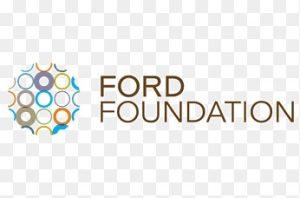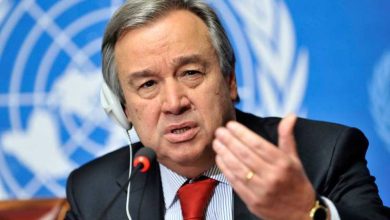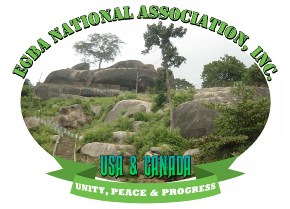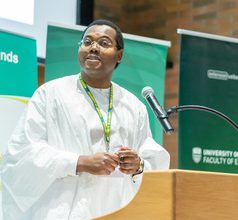
From table of Ford Foundation: Confronting gender-based violence together
Gender-based violence (GBV) is a global crisis, a rising crescendo of countless instruments. In every country, on every screen, it takes many forms against women, girls, and gender-nonconforming people: sexual assault and intimate partner violence, legislation that restricts bodily autonomy, online harassment, child marriage, and more. GBV is estimated to affect one in three women worldwide, a horrifying statistic still climbing: The United Nations estimates that, since 2020, all types of violence against women and girls, particularly domestic violence, has intensified.
But gender-based violence is not inevitable. It is not immutable. Around the world, coalitions of survivors, activists, and allies are fighting back, confronting this plague with bold ideas and bracing truth. It was in this spirit of resolution and hope last week that Ford convened and hosted “Free Future 2023: Preventing Gender Violence Around the World,” a daylong symposium of panel discussions and performances aimed at raising awareness about the scourge of GBV and uniting to end it.
At “Free Future,” social justice leaders shared their strategies for building long-term impact and ending harmful narratives. Professor Anita Hill discussed building anti-patriarchal policies in government, arguing that trickle-down social change does not work: “If you can correct things for the most vulnerable people,” she said, “you can correct things for those who are more powerful in our community. That’s what community means.” Catalina Devandas, executive director of the Disability Rights Fund and Ford trustee, pointed out the intersections between patriarchy and ableism and how people with disabilities are often excluded from discussions about GBV. “The revolution won’t happen unless it’s inclusive,” she said.

Panelists spoke consistently about fostering partnership. Dr. Fatima Maada Bio, the First Lady of the Republic of Sierra Leone, implored international cooperation: “If torture has a convention, if genocide has a treaty, why are we not pushing [the same] for gender violence?” she asked. Tarana Burke, founder and chief vision officer of me too. International, challenged funders to support global GBV resistance as a movement distinct yet entwined with other causes: “Survivor justice is reproductive justice. It is racial justice. It is gun violence. It is mass incarceration,” she said.
“Free Future” was also a day of urging care and empathy—and celebrating wins achieved. Geeta Misra, executive director of CREA, cheered the safety advances that LGBTQ+ communities have made in the Global South. Author Roxane Gay urged people to tell their own stories loudly and for those with power to hand the microphone to underrepresented communities; Tarcila Rivera Zea, Indigenous activist and president of CHIRAPAQ, promoted assertion of cultural identities and uplifting young leaders. And in an especially moving moment, Amanda Nguyen, founder and CEO of Rise, addressed sexual assault survivors directly: “You are worthy for whatever you choose to be, and your existence impacts people beyond what you know,” she said. “You are so loved—and there is healing at the end of the tunnel.”
“Free Future” is a new content series about taking action against GBV, held in partnership with The Meteor. Watch panel discussions from the symposium and stay tuned for upcoming installments.
Welcoming the World
Between the United Nations General Assembly and Climate Week, it’s been an active time at the Ford Foundation Center for Social Justice in New York. We co-hosted USAID’s “Democracy Delivers” event, committing $20 million toward strengthening global democracy. We also committed to locally led development alongside USAID and the Council on Foundations and hosted first ladies from around the world, including Dr. Jill Biden, for the Organization of African First Ladies in Development annual meeting on gender equality. We also released an encouraging progress update for our COP26 pledge to support Indigenous and local community land rights and forest guardianship. And the Center for Social Justice got a little greener, too, thanks to the Global Alliance of Territorial Communities’ gift of a new tree in the atrium.
Much of today’s tech philanthropy reflects an inequitable, problematic distribution of power. Funding goes to tech development rather than collective organizing, short-term projects instead of core funding, and individual entrepreneurs instead of communities.
As the first dedicated fund for feminist tech, Numun Fund works to shift power and resources to build a stronger ecosystem of tech activism in the larger world. We want to make sure funding flows to support technologies grounded in social justice movements that challenge prevailing power structures.
In July 2022, we launched our first grantmaking cycle, called “Seed, Grow, and Sustain,” and received over 800 applications from eligible groups in 135 countries. Now we are supporting 43 feminist tech activism groups who are working to advance the rights of people with disabilities, LGBTQI+ communities, people on the move, Indigenous groups, sex workers, young women, and women facing tech-facilitated violence.

In other news
The “hot labor summer” isn’t over—it just put on a sweater. Sarita Gupta, our vice president of U.S. programs, and Ben Whitehair, executive vice president of SAG-AFTRA, outlined in Fast Company why we’ve seen such worker solidarity in the last few months and what fall portends for fair labor practices.
Feminist foreign policy is gaining traction around the world, from Germany nearly doubling its donations toward gender equality to Argentina creating a new governmental role to advocate for trans feminist rights. Lyric Thompson, founder and chief executive of the Feminist Foreign Policy Collaborative and our grantee partner, detailed in The New York Times how prioritizing women, girls, and gender-nonconforming people in policy is good for everyone.
This month, we cheered as Mexico’s Supreme Court decriminalized abortion across the country. Our grantee partner the Information Group on Reproductive Choice (the GIRE) was pivotal in securing this victory.
It is absolutely imperative that all Americans reject the brazen antisemitism sweeping the country. Our president Darren Walker urged us out of indifference, through reconciliation, into solidarity.
Artificial intelligence is growing at an explosive pace. Rolling Stone profiled Timnit Gebru, Joy Buolamwini, Seeta Peña Gangadharan, and Safiya Noble, grantee partners who have long advocated for ethical usage and safety regulations. And TIME magazine’s first “100 Most Influential People in AI” list includes Dr. Alondra Nelson, Meredith Whittaker, and other pioneers in our network.
Local newsrooms are the bedrock of an informed society—and they’re closing at an alarming rate. That’s why we joined the MacArthur Foundation and 20 other nonprofits in pledging to invest $500 million jointly in local media organizations over the next five years.
International leaders must prioritize economic advancement in the Global South. Martín Abregú, our vice president for international programs, called for a new global governance model that allows additional perspectives on how to share resources worldwide.
Beyoncé’s Renaissance Tour and Taylor Swift’s Eras Tour lit up the summer—but some of the venues too often lacked consideration for attendees with disabilities. Our grantee partner Vilissa Thompson shared her experience and offered accessibility tips for all concert spaces.

With its strong local relationships and inclusive, trust-based philanthropy model, the Black Belt Community Foundation is changing lives in rural Alabama and beyond. Inside Philanthropy traced the organization’s rise and our role in its evolution.
Western countries have historically dominated the G20 summit, exerting the most influence while sidelining the priorities of lower- and middle-income countries. This year’s conference in India, though, introduced exciting new opportunities to expand economic justice. Our president, Darren Walker, explored some of them in Foreign Policy.
This Month in Ford History
September 1979: Ford gives its first of many grants to the Ms. Foundation for Women, a nonprofit founded by Gloria Steinem, Patricia Carbine, Letty Cottin Pogrebin, and Marlo Thomas. Dedicated to securing gender justice, equality, and representation, it is now the oldest women’s organization in the United States.
© 2023 Ford Foundation, some rights reserved.
FOOTNOTE: You want to share story with us? You want to advertise with us? You need publicity for product, or service, or event? Contact us on WhatsApp +2348073463653 or email penpushing@yahoo.com







